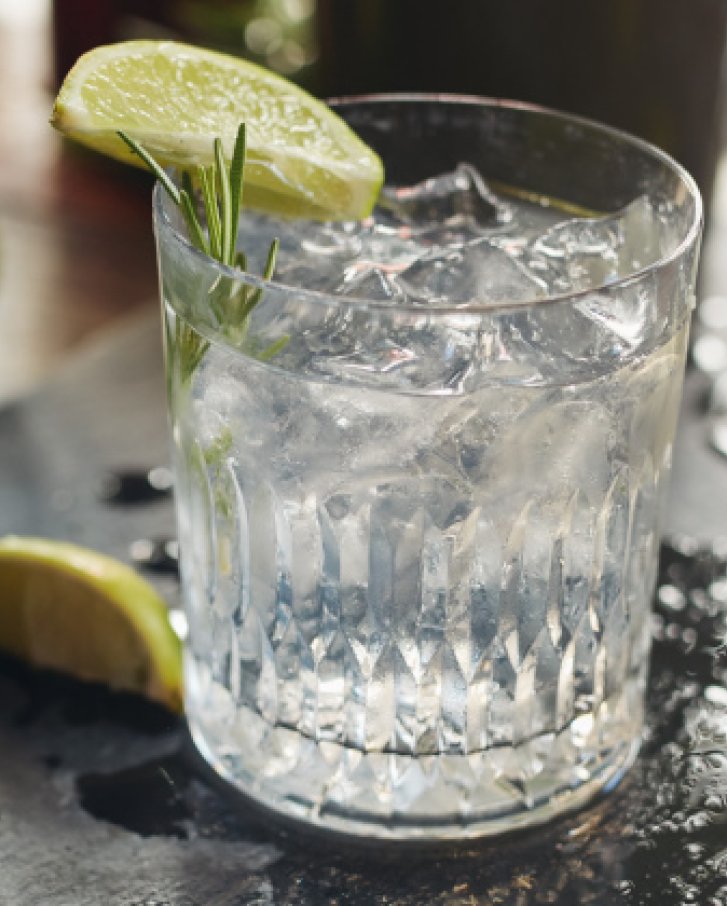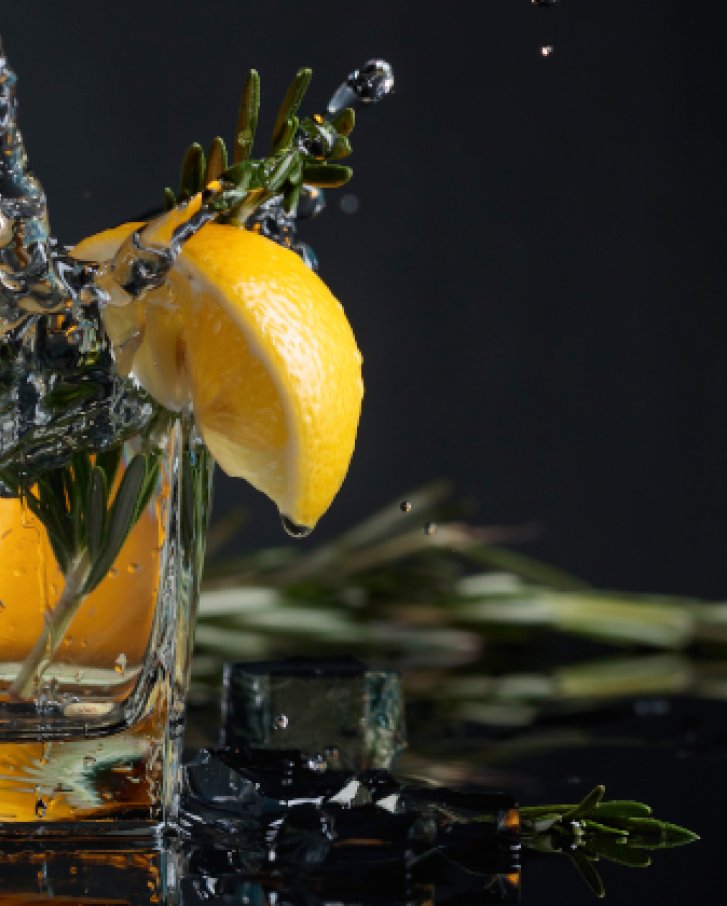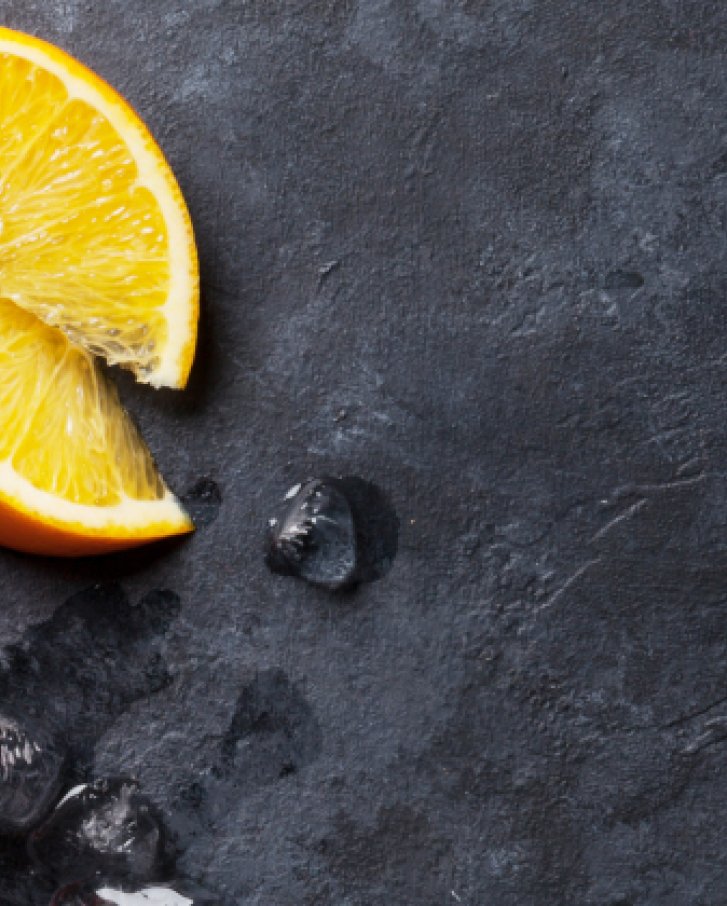Before you buy a gin, you should learn everything about the stages of gin production.
When buying gin, you can observe that different gin varieties have the flavors added in different stages of production. Basically, a distinction is made between flavoring during and after distillation. Different methods such as cold extraction, hot extraction or multiple aromatization can be used. There are different ways in which a gin can be produced and also numerous ways to add the desired aroma to the neutral alcohol. Nevertheless, there are four phases into which the production steps can be roughly divided, although these steps and any intermediate steps may vary depending on the distiller. The first step towards buying gin begins with maceration. Here, the spices are added to the neutral alcohol. This is followed by distillation. For this, the spiced alcohol is put into a kettle. Then the alcohol boils and emits vapors before it cools down again. Next, the gin must be stored, this takes between one and four weeks, depending on the manufacturer and variety. After storage, the gin is diluted with water to drinking strength and delivered by the manufacturer to the various stores so that the customer can buy his gin. This can be done either through a local gin store or online. Besides gin, by the way, you can also buy rum from us. Our assortment is large!
Variant 1 with cold extract (maceration)
In cold extraction, various ground or squeezed botanicals are added to the neutral alcohol. Since the ingredients have been ground or pressed, they can develop their full flavor variety. You will notice this when you buy and taste such a gin. After a few weeks, the distillate is filtered, slightly diluted and bottled. With multiple maceration, the gin gains depth and acquires more flavor nuances. However, this may then no longer be marketed as "London Dry Gin". When you buy this gin, this represents a single maceration. By macerating the spices in the alcohol, the color and aroma compounds are removed from the botanicals and passed on to the alcohol. In the process, the botanicals do not sink, but float on the surface of the alcohol. The difference to brandy is that the individual ingredients of gin do not contain enough sugar and therefore no alcohol can be extracted from them. Therefore, the ingredients must be steeped in neutral alcohol. However, there are also some producers where the gin does not gain flavor during maceration, but during distillation. In these cases, the distilleries put their botanicals in an aroma basket so that the vapors pass by the botanicals in the basket, absorbing its aromas. When buying gin, you have the choice - according to your personal taste!
Variant 2 with hot extraction (digestion).
When buying gin, there is another method of production - the hot extract. In this process, various botanicals are crushed and inserted or "bathed" in the 70-degree alcohol. This allows the spices and herbs to gently release their ingredients into the alcohol. In contrast to the maceration process, this method pulls the color and aroma substances out of the cell walls of the spices more quickly and releases them better into the alcohol. However, this process is more complicated and requires a lot of care, because the distiller must be careful not to heat the alcohol too quickly or too slowly. Otherwise, there is a risk that the botanicals will release bitter substances into the alcohol - and very few people want to buy a gin that tastes bitter.
Variant 3 with multiple aromatization (percolation).
You can also buy a gin made with the method of multiple aromatization, also called steam infusion, among others. In this process, botanicals are placed in large sieves above the still. The gaseous alcohol is passed through these sieves with steam. In this way, the diverse flavor aromas are released and gently passed on to the spirit. The great advantage of this method is that the alcohol vapor only absorbs flavors and not bitter substances, which are less popular when buying gin. Because the flavors are not as pronounced as in maceration, this method usually uses those botancials that would be too filtered in the maceration process. On the other hand, percolation requires the use of many more herbs, spices and fruits in order to extract enough flavor for a good gin. This process entails much higher production costs, but has the selling advantage that gin made this way can be sold as "distilled gin." Buying distilled gin therefore costs the end consumer more money, but many gin connoisseurs particularly enjoy drinking these varieties.
The distillation
After a further distillation, the gin-typical clear spirit is produced, which we are used to from buying gin. In order to select by-products such as fusel oils, methanol and vinegar pomace, the pre-run and post-run are separated after the distillation process. The middle run, or final product, is reduced to a drinking strength of the legally specified 37.5% by volume by adding water. People who buy gin that has a higher alcohol content often associate it with a rounder taste. The water and the alcohol are separated from each other. During heating, the vapors of the alcohol rise in the still, where they are directed into a cooled spiral. The vapor then condenses and becomes liquid. The result is a very high percentage gin (about 96%). Before you can buy the gin, it must be diluted with water, otherwise it would not be drinkable. Heating the still can be done by different methods. There is the classic method with fire, but this is rarely used anymore, because the risk is too great that the gin could burn. However, you certainly do not want to buy burnt gin. Instead, it is most often heated by gas or electrically. This has the advantage that the desired temperature is reached quickly and can be well controlled.












































































 Login with Amazon
Login with Amazon